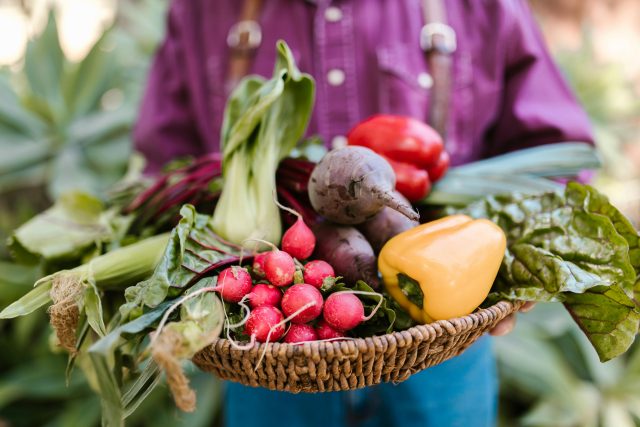Introduction
Kenya’s agriculture sector is facing increasing challenges due to climate change, but climate-smart farming offers real solutions. This guide will help you learn practical, profitable, and sustainable techniques that can boost productivity and protect the environment.
Kenya’s agriculture sector is experiencing rising temperatures, erratic rainfall, and prolonged droughts due to climate change. These challenges threaten food security and farmer livelihoods, making it essential to adopt climate-smart agriculture (CSA) practices.
Climate-smart farming focuses on boosting productivity, increasing resilience to climate change, and reducing greenhouse gas emissions. This guide explores 10 practical and profitable CSA techniques that Kenyan farmers can implement to safeguard their future.
1. Grow drought-resistant and climate-resilient crops.
How It Helps
Drought-resistant crops require less water, making them ideal for Kenya’s dry regions. These crops improve food security and reduce losses during droughts.
Why It Matters
Kenya’s semi-arid regions are experiencing longer dry spells, leading to massive crop failures. Switching to drought-resistant crops ensures higher yields with minimal water.
Best Drought-Resistant Crops for Kenya
- Sorghum—Thrives in low rainfall areas.
- Millet—Requires less water than maize.
- Cassava—Tolerates drought and poor soils.
- Pigeon peas—Restores soil fertility and withstands harsh conditions.
Expert Insight: Switching to drought-resistant crops like sorghum can increase yields by up to 30% in arid regions.
2. Implement agroforestry (integrating trees with farming).
Why It Works
Agroforestry enhances soil fertility, prevents erosion, and provides additional income from trees. It also acts as a natural carbon sink, helping reduce greenhouse gas emissions.
The best trees for agroforestry in Kenya
- Grevillea—Improves soil structure and provides timber.
- Moringa—Nutritious leaves and medicinal benefits.
- Calliandra—Ideal for livestock fodder and nitrogen-fixing.
Expert Insight: Integrating Grevillea trees into farms improves soil moisture retention and can generate additional income through sustainable timber harvesting.
3. Conservation Agriculture: Protecting Soil Health
3 Key Techniques for Kenyan Farmers
- No-Till Farming—Reduces soil erosion and water loss.
- Cover Cropping—Improves soil nutrients and prevents land degradation.
- Crop Rotation—Enhances biodiversity and prevents pest buildup.
Expert Insight: Studies show that conservation agriculture can improve soil health and increase yields by up to 25% within three years.
4. Smart Irrigation Systems: Maximizing Water Efficiency
Actionable Steps
- Install drip irrigation to reduce water loss.
- Use mulching to retain soil moisture.
- Harvest rainwater to store for drier periods.
Why It’s Crucial
With water scarcity worsening, efficient irrigation can maximize yields while reducing waste.
- Best Smart Irrigation Techniques
- Drip Irrigation—Directly supplies water to plant roots, reducing evaporation.
- Rainwater Harvesting—Captures and stores rainfall for use during dry periods.
- Mulching—Covers soil to retain moisture and regulate temperature.
Expert Insight: Drip irrigation reduces water usage by 50% while increasing yields, making it the best option for water-scarce regions.
5. Organic farming and composting.
Why It’s Important
Organic farming improves soil health, reduces dependence on chemical fertilizers, and creates healthier food options.
Why It’s Beneficial
Switching to organic fertilizers and biopesticides improves soil health and reduces dependency on chemicals.
How to Implement It
- Use Compost & Manure—Reduces synthetic fertilizer dependency.
- Bio-Pesticides—Neem, garlic, and chili sprays for pest control.
- Intercropping—Naturally controls pests by mixing compatible crops.
Expert Insight: Organic farming associations state that organic vegetables sell at a 40% premium in urban markets due to rising consumer demand for healthier produce.
6. Integrated Pest & Disease Management (IPM)
Eco-Friendly Pest Control Techniques
- Encourage Natural Predators—Ladybugs and birds eat harmful insects.
- Rotate Crops—Prevents pest infestations.
- Organic Pesticides—Neem and chili sprays instead of synthetic chemicals.
Expert Insight: Integrated Pest Management (IPM) can cut pesticide costs by 60% while maintaining high crop quality.
7. Soil Conservation: Preventing Erosion
Best Soil Conservation Techniques
- Terracing—Reduces runoff on slopes.
- Contour Farming—Slows water movement to prevent erosion.
- Biochar Application—Enhances soil fertility and moisture retention.
Expert Insight: Terracing on hilly farms can reduce erosion and increase maize yields by up to 20%.
8. Livestock and crop integration.
Why It’s Important
By combining livestock and crop farming, farmers create a sustainable loop where waste is recycled back on the farm.
- Benefits of Livestock-Crop Integration
- Manure Improves Soil Fertility
- Crop residues provide animal feed.
- It reduces chemical fertilizer usage.
Expert Insight: Using livestock manure instead of synthetic fertilizers can save farmers up to Ksh 20,000 annually while enriching soil fertility.
9. Renewable energy in farming.
Best Renewable Energy Solutions
- Solar-Powered Irrigation—Reduces electricity costs.
- Biogas from Animal Waste—Provides clean cooking fuel.
- Wind and Solar Drying—Preserves produce for longer storage.
Expert Insight: Solar-powered irrigation systems can cut farm energy costs by 40% while ensuring sustainable water use.
10. Carbon Farming: Earning from Sustainability
How Can You Profit?
- Grow cover crops to capture carbon in soil.
- Use biochar to enhance soil structure.
- Register for carbon credits and earn income.
- How Kenyan Farmers Can Benefit
- Grow Cover Crops—Captures carbon in soil.
- Use biochar—locks carbon into the ground.
- Register for Carbon Credits—Sell carbon offsets to global markets.
Expert Insight: Kenyan farmers who adopt carbon farming techniques can earn income through carbon credits, incentivizing sustainable practices.
Conclusion: The Future of Climate-Smart Farming in Kenya
Climate-smart farming is the key to sustainable agriculture in Kenya. By adopting these practices, farmers can increase yields, conserve resources, and secure a climate-resilient future.
Climate change is a reality, but climate-smart agriculture offers real solutions. By adopting drought-resistant crops, conservation farming, water-efficient irrigation, and agroforestry, Kenyan farmers can increase productivity while protecting the environment.



